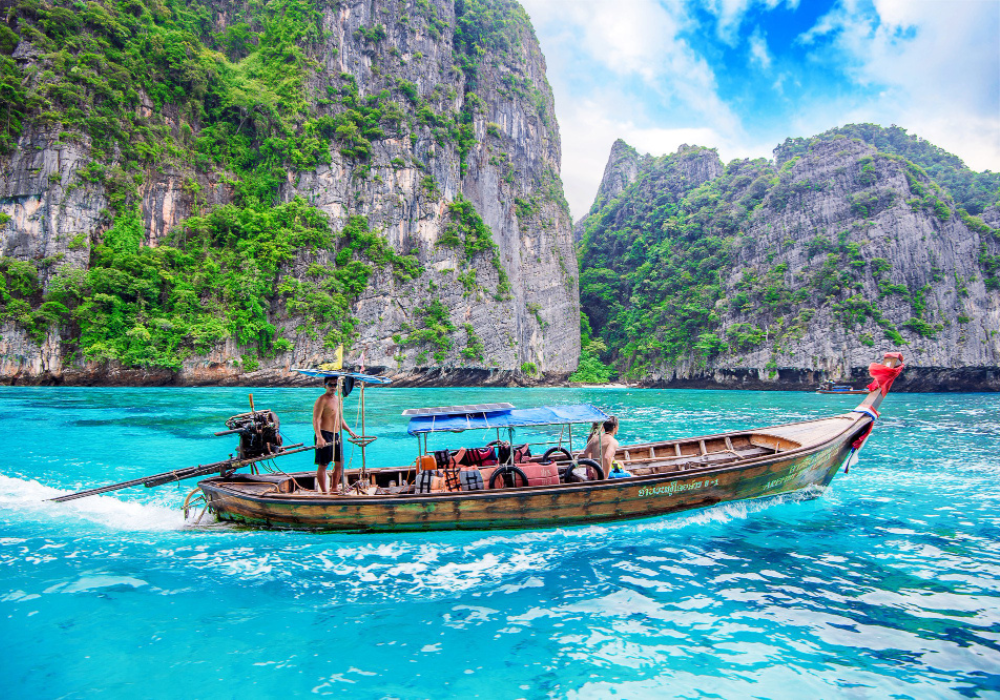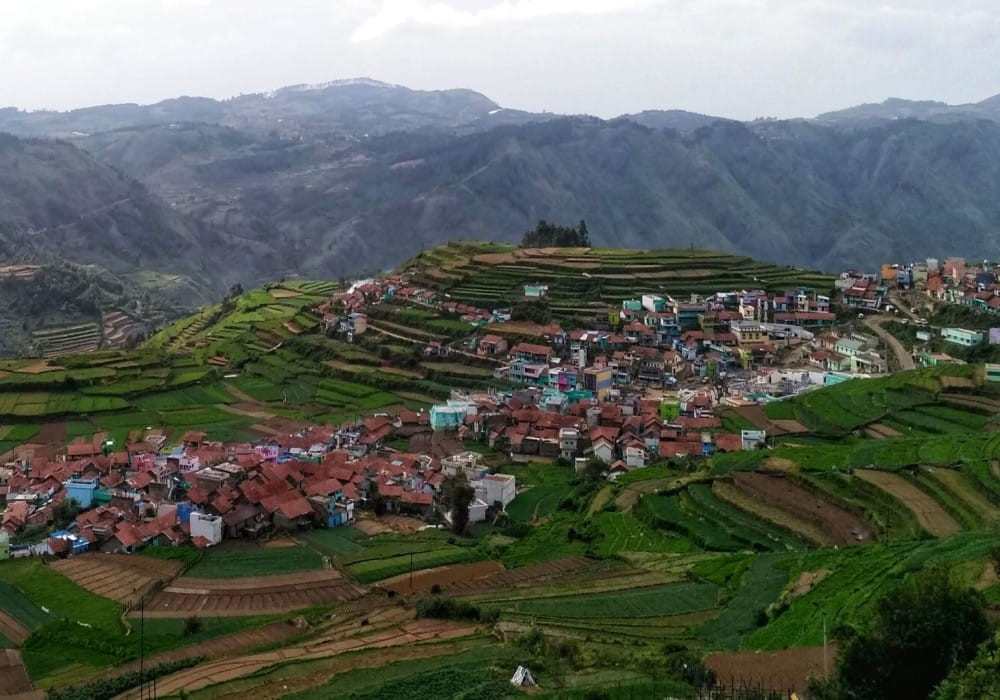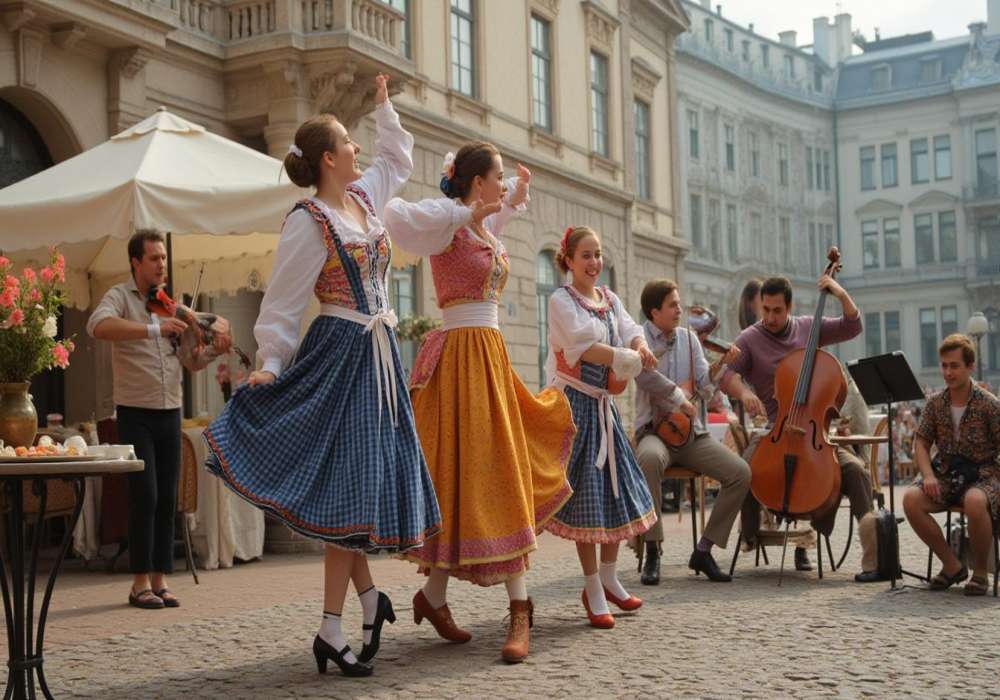
Last Updated At: 15-May-2025
14 Fun Facts About Austria | You Didn't Know
Austria, a nation in the centre of Europe, is well known for its alluring combination of scenic natural beauty, rich cultural history, and historical significance. The country is a sanctuary for nature lovers and adventure seekers alike with its beautiful Alpine vistas that extend as far as the eye can see. Because this country gave birth to musical giants like Mozart and Strauss, the air is filled with the echoes of classical songs. Rich in imperial history, cities like Vienna's exquisite palaces and architectural wonders provide a window into an ancient Austrian history. Come along on a tour as we uncover the fascinating details that make Austria a true gem of Europe.
List Of 14 Interesting Facts About Austria
There is a lot of history and fascinating information about this nation. We've gathered some interesting Austrian facts for you, whether you're visiting to check out the top tourist attractions of Austria or just curious about the country. Here are some fascinating facts about the country you should know before going there.
- Austria is an Island Nation
- Austria Enjoys High Altitude Location
- Earlier, Austria belonged to the Austro-Hungarian Empire
- Vienna was a centre of European culture and creativity
- After World War II, Austria was divided
- Hydropower produces 50% of Austria's electricity
- Austria has a small population
- Vienna was involved in nine major wars throughout the nineteenth century
- The world's largest ice cave is in Austria
- In Austria, archaeologists discovered Europe's oldest known natural human mummy
- For Austrians, coffee is extremely important
- A palace in Vienna has 1,441 rooms13. The origin of postcards as we know them Is Austria
- The origin of postcards as we know them Is Austria
- Austria has a long history of organic agriculture
1. Austria is an Island Nation
Due to its lack of a coastline, Austria must often be mistaken for an island nation. It is a landlocked European republic surrounded by eight other nations. Austria is an engaging location with a captivating attractiveness due to its breathtaking Alpine vistas, rich history, and cultural treasures, considering its geographic isolation from the sea.
2. Austria Enjoys High Altitude Location
Due to its location in the magical embrace of the Alps; high heights mostly characterise Austria's terrain. Its stunning vistas, which seamlessly blend snow-capped peaks and lush valleys, are made possible by its majestic location. These high-altitude areas are also a paradise for outdoor enthusiasts, with Austria's allure heavily reliant on skiing, mountaineering, and other alpine activities.
3. Earlier, Austria belonged to the Austro-Hungarian Empire
Austria played a significant role in the Austro-Hungarian Empire's historical development until the empire's breakup following World War I. This international empire included many different Austrian cultural heritage and it had a significant impact on the political and cultural development of Central Europe. Through Austria's extensive history and beautiful architecture, the lasting impact of this empire's heritage may still be felt today.
4. Vienna was a centre of European culture and creativity
Austria's capital city, Vienna, has long been hailed as the epicentre of European culture and creativity. It was a thriving centre for writers, musicians, and thinkers for centuries, influencing literature, music, and philosophy. Visitors wishing for a taste of the city's cultural past are still inspired and enthralled by its grandeur, which its rich palaces and world-class institutions exemplify.
5. After World War II, Austria was divided
Austria experienced a temporary partition following World War II, much like Germany. The United States, Soviet Union, United Kingdom, and France each controlled one of the four occupied zones in the nation. But unlike Germany, Austria was reunited by 1955, regaining its sovereignty and unity due to its neutrality and diplomatic efforts.
Read more : Culture Of Austria
6. Hydropower produces 50% of Austria's electricity
Austria's energy system is firmly based on hydropower, which produces 50% of the country's electricity. Austria has tapped into this renewable resource for environmentally friendly electricity generation using the numerous Alpine rivers and lakes. This focus on hydropower illustrates Austria's commitment to environmentally beneficial methods and its creative strategy for supplying energy demands while protecting the environment.
7. Austria has a small population
Austria has a modest population with a rich cultural history and beautiful scenery. The country, which has almost 9 million people, offers a distinctive fusion of urban sophistication and serene rural settings. Austrians can keep a strong sense of identity and a connection to their roots because of their small population, which has helped foster a close-knit community where traditions flourish.
8. Vienna was involved in nine major wars throughout the nineteenth century
Vienna, Austria's capital, was involved in nine significant conflicts that impacted its history throughout the 19th century. These wars, which included the Napoleonic Wars and the Revolutions of 1848, permanently changed the city's social, political, and cultural fabric. These turbulent events were extremely important in determining Vienna's status as a key European hub.
9. The world's largest ice cave is in Austria
The largest ice cave in the world, the Eisriesenwelt, is in Austria. This natural wonder, located in the Tennengebirge mountain range, is 42 kilometres long and features stunning ice formations. The cave, found in 1879, attracts tourists to see this unmatched display because of its captivating frozen sculptures and exquisite ice formations, making it an outstanding location within Austria's boundaries.
10. In Austria, archaeologists discovered Europe's oldest known natural human mummy
In Austria, archaeologists discovered the oldest known natural human mummy in Europe. This amazing find, known as "Tzi the Iceman," was made in the Tztal Alps, 1991. Tzi, who has been protected by ice for about 5,300 years, provides fascinating insights into prehistoric life by giving viewers a look at the tools, clothing, and physical condition of a prehistoric person.
11. For Austrians, coffee is extremely important
For Austrians, coffee is incredibly important culturally. Since the 17th century, cafés have fostered discussions and cultural interaction in Vienna. The "Kaffeehauskultur" is still prevalent, and enjoying coffee is still a valued habit. Each blend, from Einspänner to Melange, has a unique history that reflects Austrians' profound commitment to their coffee heritage.
Read more : Famous Food Of Austria
12. A palace in Vienna has 1,441 rooms
Astonishingly, the Schönbrunn Palace in Vienna, Austria, has 1,441 rooms. This magnificent Baroque, UNESCO World Heritage Site, served as the imperial summer home. Its great design and opulent architecture capture the splendour of the Habsburg period. The Great Gallery and the Hall of Mirrors stand out among its outstanding interiors as shining examples of Austrian architectural splendour.
13. The origin of postcards as we know them Is Austria
Austria is where we can trace the origins of the modern postcard. The idea of picture postcards was invented in this nation in the late 19th century, with the original designs showcasing stunning panoramas and landscapes. This novel concept immediately gained popularity, transforming communication and inspiring a global cultural phenomenon. Even in today's digital age, Austria's influence on this classic mode of communication is still substantial.
14. Austria has a long history of organic agriculture
Austria has a long and illustrious history of organic agriculture. The use of organic farming practices has increased due to the country's dedication to ecological harmony and sustainable farming practices. Austria's organic movement is still thriving, demonstrating a peaceful coexistence between human cultivation and the environment with its bountiful plains and unspoiled landscapes.
Adotrip is a fantastic choice for a travelling partner when organising a trip to Austria if you want a hassle-free and enjoyable vacation. Adotrip can improve your trip by offering thorough travel guides, skillfully designed itineraries and local expertise. Find out some unusual Austrian facts. Utilise Adotrip's advice to plan your trip to top tourist attractions in Austria efficiently.
Frequently Asked Questions About Facts About Austria
Q1. What are some key historical events that shaped Austria?
aA1. The rise and fall of the Austro-Hungarian Empire, its participation in both World Wars, its partition and reunion following World War II, and its influence on European political and cultural developments are among the major events.
Q2. What are some famous Austrian musicians, artists, and writers?
A2. Numerous well-known individuals from Austria have made significant contributions to world culture, including the composers Mozart, Beethoven, and Strauss, the painters Gustav Klimt and Egon Schiele, and the novelists Franz Kafka and Arthur Schnitzler.
Q3. How is the Austrian Alps a prominent feature of the country?
A3.The Austrian Alps are a distinctive natural feature that holds great prominence. These spectacular mountains span the entire country and provide breathtaking views and year-round outdoor activities like skiing and hiking.
Q4. What are some popular Austrian foods and beverages?
A4. The Austrian cuisine, which reflects a fusion of tastes influenced by Central European traditions, including well-known delicacies like Wiener Schnitzel (breaded and fried veal or pork), Sachertorte (chocolate cake), Apfelstrudel (apple strudel), and delicious coffees.
Q5. How is Austria known for its cultural contributions, especially in classical music?
A5. Austria has made a legendary contribution to culture, especially in classical music. Birthplace of Strauss, Beethoven, and Mozart, the country is home to venerable buildings like the Vienna State Opera. Unparalleled performances are presented at its music festivals, such as the Salzburg Austrian festivals. Austria has left a lasting heritage that influences classical music and fosters a dynamic cultural landscape that continues to captivate audiences worldwide.
Q6. What are some notable festivals and celebrations in Austria?
A6. Vienna served as a centre for music, fostering renowned orchestras, opera houses, and timeless compositions. Austria is known for its rich classical music tradition, rooted in the works of legendary composers like Mozart and Strauss.
Q7. How does Austria's political system work?
A7. An efficient federal parliamentary republic in Austria. The National Council is the principal legislative body governed by democratic ideals. The President is the head of state, and the Chancellor oversees the administration.
Q8. What are some renowned architectural landmarks in Austria?
A8. Austria is home to famous architectural landmarks like Vienna's St. Stephen's Cathedral, Schönbrunn Palace, and Hofburg Imperial Palace. Other noteworthy locations include the baroque masterpiece Melk Abbey and the Bregenz Festival Stage on Lake Constance. Each building displays Austria's extensive history, creative skill, and cultural importance.
Q9. What is the current economic landscape of Austria?
A9. The real GDP growth rate of 5.0% was the highest since 1995, when Austria joined the EU. Following a quarter of stagnation in 2022, GDP is predicted to have decreased by -0.3% in the first quarter of 2023 due to a sharp decline in exports of goods.
--- Published By Adotrip
Latest Blogs

Cash in the Wild: My Safari Adventure Across Kenya with Only...

One Day Picnic Spot Near Pune - Adventure, Trekking and Natu...

One Day Picnic Spots Near Mumbai - Monsoon, Adventure, Beach...

The Best Places to Go in Thailand in 2025











.png)

 Dubai
Dubai Malaysia
Malaysia USA
USA





